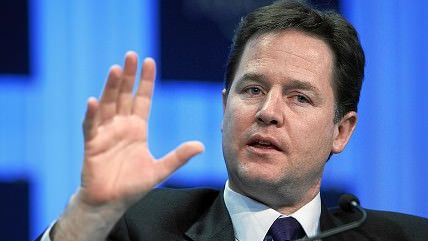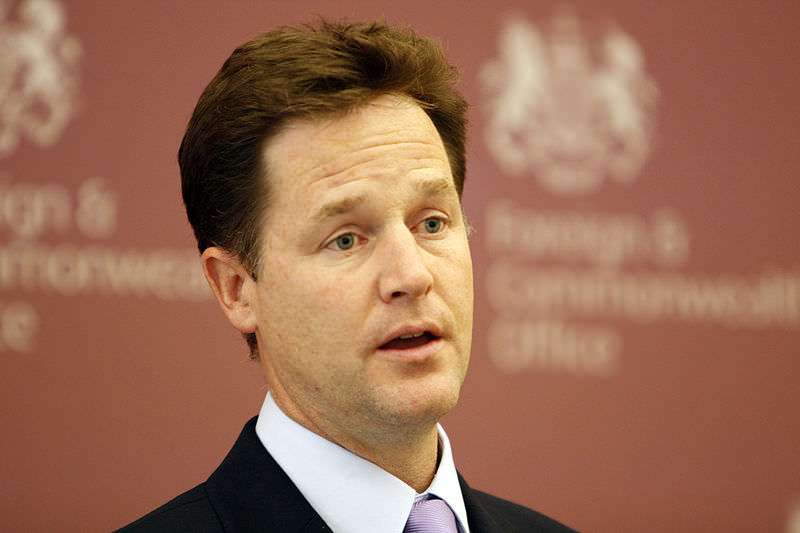British Deputy PM Backs 'Ending the Drug Wars' Report


Today the London School of Economics' Expert Group on the Economics of Drug Policy published a report titled "Ending the Drug Wars."
Five Nobel Prize-winning economists, former U.S. Secretary of State George Schultz, and British Deputy Prime Minister Nick Clegg are among the 21 signatories of the report's foreword.
The foreword reads as follows:
The pursuit of a militarised and enforcement-led global 'war on drugs' strategy has produced enormous negative outcomes and collateral damage. These include mass incarceration in the US, highly repressive policies in Asia, vast corruption and political destabilisation in Afghanistan and West Africa, immense violence in Latin America, an HIV epidemic in Russia, an acute global shortage of pain medication and the propagation of systematic human rights abuses around the world.
The strategy has failed based on its own terms. Evidence shows that drug prices have been declining while purity has been increasing. This has been despite drastic increases in global enforcement spending. Continuing to spend vast resources on punitive enforcement-led policies, generally at the expense of proven public health policies, can no longer be justified.
The United Nations has for too long tried to enforce a repressive, 'one-size-fits-all' approach. It must now take the lead in advocating a new cooperative international framework based on the fundamental acceptance that different policies will work for different countries and regions.
This new global drug strategy should be based on principles of public health, harm reduction, illicit market impact reduction, expanded access to essential medicines, minimisation of problematic consumption, rigorously monitored regulatory experimentation and an unwavering commitment to principles of human rights.
In February I noted that Clegg, who said "I don't think we're winning the drugs war," does not back drug legalization and has expressed frustration with the Conservatives, led by Prime Minister David Cameron, who he says are not willing to examine alternative drug policies.
Indeed, Cameron thinks that the U.K.'s drug policy is working, despite the fact that a Home Affairs Committee report stated that Portugal's decriminalization policy "is a model that merits significantly closer consideration" and recommended that "the responsible minister from the Department of Health and the responsible minister from the Home Office together visit Portugal in order to examine its system of depenalisation and emphasis on treatment."
Cameron's stance on drugs does not correspond well with the attitudes of much of the British public and supporters of his party. Last year, a poll commissioned by the Transform Drug Policy Foundation showed that 53 percent of the British public and 50 percent of Conservative supporters are in favor of "legal regulation or decriminalisation of cannabis" and that 67 percent of the British public and 70 percent of Conservative supporters "want a comprehensive review of all policy options."


Show Comments (4)